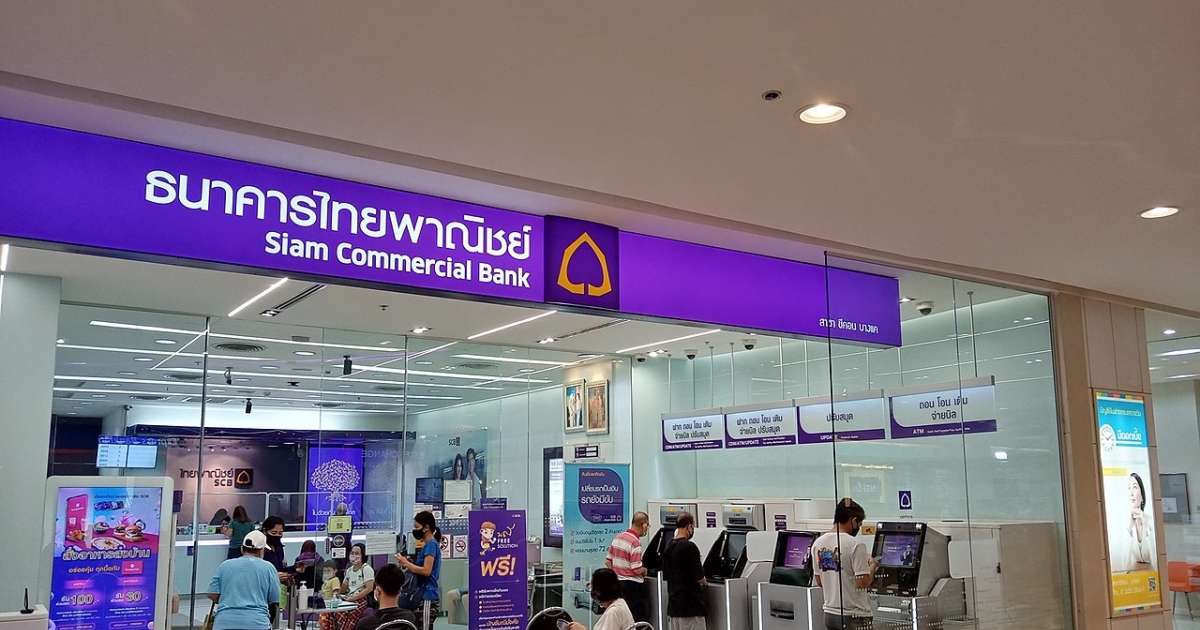2025 Guide to Retiring in Thailand for Singaporeans
Thinking about retiring in Thailand? Whether you’re planning for the future or ready to move soon, this comprehensive guide will help you take practical, well-informed steps towards your Thai retirement dream.
Why Retire in Thailand?
Thailand isn’t just a holiday hotspot. It’s a retirement haven. The cost of living is famously lower than Singapore’s. Food is vibrant and affordable. The tropical weather is a big draw. Healthcare is top-notch. Furthermore, you’ll find thriving expat communities alongside modern amenities and rich culture.
Pro Tip: Research several Thai regions before deciding where to live. Chiang Mai offers cooler climes and a relaxed pace. Bangkok presents a city buzz and endless food options. Phuket and Hua Hin bring beaches and tranquil living.

Thailand Retirement Visa Options for Singaporeans in 2025
Getting your visa right is the first step to avoiding headaches down the line. Thailand’s retirement visa landscape is diverse, so choose carefully:
Non-Immigrant O Visa (Standard Retirement Visa)
- Eligibility:
- Must be at least 50 years old.
- Meet one of the following financial requirements:
- 800,000 THB (approximately S$32,000) in a Thai bank account for at least 2 months before application and 3 months for renewal.
- Monthly income of 65,000 THB (approximately S$2,600) from verifiable sources.
- Combined deposit and annual income totaling 800,000 THB (approximately S$32,000).
- Valid passport with at least 6 months’ validity.
- Validity: Initial 90-day stay, extendable annually.
Note: Health insurance, medical certificate, or police clearance is not required at the initial O extension stage (only required for O‑A).

Non-Immigrant O-A Visa (Long Stay Retirement Visa)
- Eligibility:
- Application can be made from abroad or inside Thailand; not strictly required from Singapore only.
- Health insurance covering:
- Age ≥ 50 and apply from abroad/residency in the application country.
- Financial threshold matches O‑visa: 800,000 THB (approximately S$32,000) deposit or monthly income of THB 65,000 (approximately S$2,600), or a combination.
- Health insurance must cover COVID‑19, with total annual coverage of THB 3,000,000 (approximately S$120,000).
- Medical certificate, police clearance required.
- Valid for 1 year, renewable annually.
- Medical certificate and police clearance certificate required.
- Validity: 1-year stay from the date of entry.
Non-Immigrant O-X Visa (5-Year Retirement Visa)
Eligibility:
- Age ≥ 50 and nationality eligibility (certain Western countries)
Financial RequirementAmount (THB)Amount (Approx. SGD)ConditionsOption 1: Full Deposit3,000,000 THB~120,000 SGDMust be maintained in a Thai bank account for at least 1 year. After 1 year, the balance must remain at no less than 1,500,000 THB (~60,000 SGD).Option 2: Combined Deposit & Income1,800,000 THB + 1,200,000 THB/year~72,000 SGD + ~48,000 SGD/yearDeposit of 1.8 million THB must be maintained for at least 1 year (then ≥ 1.5 million THB). Annual income of at least 1.2 million THB must be verifiable and sustained.Note: All funds must be deposited in a Thai bank. The income must be from a stable, verifiable source (e.g., pension, investment returns).
- Health insurance requirement: coverage of at least THB 3,000,000 (approximately S$120,000), not just the inpatient/outpatient figures.
- Valid for 5 years (renewable once), total 10 years; no employment allowed.

Long-Term Resident (LTR) Visa - Wealthy Pensioner Category
- Eligibility:
- Age 50 or above.
- Annual pension/passive income of at least USD 80,000 (approximately S$103,200) OR
- USD 40,000 (approximately S$51,600) annual income plus USD 250,000 (approximately S$322,500) investment in Thai assets.
- Health insurance coverage of at least USD 50,000 for 10+ months (approximately S$64,500).
- Benefits:
- 10-year validity (5+5 years).
- Annual reporting instead of 90-day reporting.
- Fast-track airport services.
- Tax exemption on foreign-sourced income.
Note: Foreign‑source income is eligible for tax exemption if it is not remitted into Thailand, per LTR tax rules (implicit benefit).
Thailand Elite Visa
- 2025 Packages:
- Bronze: 650,000 THB (approximately S$26,000) (5 years).
- Gold: 900,000 THB (approximately S$36,000) (5 years).
- Platinum: 1.5 million THB (approximately S$60,000) (10 years).
- Diamond: 2.5 million THB (approximately S$100,000) (15 years).
- Reserve: 5 million THB (approximately S$200,000) (20 years).
- Benefits:
- No financial requirements after payment.
- VIP airport services, multiple re-entries, and concierge services.
Financial Requirements and Banking
Opening a Thai Bank Account
There are specific restrictions for opening a Thai bank account: tourist visa holders cannot open accounts, while long-term visa holders can.
The required documents include a valid passport, a valid long-stay visa, proof of a Thai address, and an initial deposit, which varies by bank.
The recommended banks for opening an account are Bangkok Bank, Kasikorn Bank, and Siam Commercial Bank.
Currency and Money Transfers
There is an 800,000 THB requirement, which is approximately S32,000toS32,000 to S32,000toS33,000 at current exchange rates. The funds must be transferred from overseas and seasoned in the account for the required periods.
Specifically, this means the funds should be in the account for at least two months before applying, with documentation showing the international transfer. Additionally, the balance must be maintained for another three months after issuance.

Healthcare and Insurance
- Healthcare Costs:
- Public Hospitals: General consultation costs 200-500 THB (approximately S$8-20).
- Private Hospitals: Specialist consultation costs 1,500-3,000 THB (approximately S$60-120), hospitalisation, which is an average standard room, often ~ 4,000–13,600 THB (approximately S$160-544); ICU ≥20,000 THB (approximately S$800) per night.
- Health Insurance Requirements:
- Mandatory for O-A and O-X visas.
- Must cover outpatient 40k THB (approximately S$1,600) and inpatient 400k THB (approximately S$16,000); USD100k (approximately S$129k) COVID coverage rule may vary by embassy.
- New co-payment rule (March 20, 2025): 30% co-payment required if filing three or more claims totaling 200% of the annual premium. Note: Co-payment rates can reach 50% if both thresholds are exceeded, not a flat 30%, but escalate to 50%.
- Expat Health Insurance:
- Lower-cost options (~USD 35–90/month; approximately S$45.15–S$116.10) exist, though more comprehensive plans may exceed USD 100/month (approximately S$129).
- Covers evacuation, ICU, and cancer treatment.
Cost of Living Comparison
Overall Cost Differences:
Thailand is 57.7-67.7% cheaper than Singapore overall. Specifically, rent is 82.5% lower in Thailand.
| Category | Singapore (S$) | Thailand (THB / SGD) |
|---|---|---|
| Inexpensive hawker meal | 12 | 100 (S$4) |
| 1-BR apartment, city centre | 4,000 | 21,900 (S$876) / 16,000 (S$640) |
| Utilities (85 m², monthly) | 219 | 3,400 (S$136) |
| Public transport pass | 104–128 | 1,250 (S$50) |
Tax Obligations
- Thai Tax Residency:
- Singaporeans spending 180+ days in Thailand become tax residents.
- Filing required for domestic income and foreign income remitted exceeding:
- 220,000 THB (approximately S$8,800) (married).
- 120,000 THB (approximately S$4,800) (single).
- Income Tax Rates: Progressive rates from 5-35%.
- Exempt Income:
- Singapore government pensions.
- Social security payments from Singapore.
Property Ownership
- Condominium Ownership:
- Full freehold title allowed.
- Maximum 49% foreign ownership per building.
- Transfer fees: 2% of appraised value.
- Land Ownership Alternatives:
- Leasehold arrangements: 30+30+30 years.
- Thai limited company structure (higher risks due to increased scrutiny in 2025).

Visa Processing and Immigration
- Visa Extension Process:
- Apply 30 days before expiry.
- Updated bank statements, health insurance (for O-A holders), and 1,900 THB (approximately S$76) processing fee required.
- 90-Day Reporting:
- All long-term visa holders must report their address every 90 days (except LTR visa holders who report annually).
- Major Immigration Offices:
- Chaeng Watthana (Bangkok).
- Jomtien (Pattaya).
- Promenada (Chiang Mai).
Cultural Adaptation
Key cultural differences in Thailand include the influence of Buddhism on daily life, which necessitates respect for temple etiquette.
There is a strong emphasis on respecting age and status, and the concept of "saving face" is crucial in interactions.
To integrate successfully, it is helpful to learn basic Thai phrases, participate in local festivals such as Songkran and Loy Krathong, and understand Buddhist customs and temple etiquette.
2025 Policy Updates and Changes
| Policy Area | Claimed Updates | Effective Date | Notes |
|---|---|---|---|
| LTR Visa – Wealthy Global Citizens | Annual income requirement withdrawn | 14 Jan 2025 | Cabinet approved removal of the US $80,000 (approx. S$103,000)/year rule, eligibility now based on investment/assets instead. |
| Dependent definition expanded (no limit; parents includable) | Feb 2025 | Limits lifted, dependents can include spouse, children and parents. | |
| Thailand Privilege (Elite Visa) | New Bronze package available until 31 Dec 2025 | Originally 30 Jun 2025, extended through 31 Dec 2025 | Package cost ~650 k THB,( approx. S$26,000), cheapest 5 year Elite option. |
| Waived THB 50,000 application fee | Temporarily waived until 31 Dec 2025 | No up front background check deposit required this phase. | |
| Entry Requirement (TDAC) | TDAC mandatory for all non Thai nationals | From 1 May 2025 | TDAC replaced the paper TM6 form; submission required 3 days before arrival for each entry. |
| Health Insurance Co payment Rules | New 30–50% co pay thresholds applied | From 20 Mar 2025 | Based on thresholds for minor/general illnesses; doesn’t affect major illness/surgery. |
Key Action Steps for a Smooth Transition
- Step 1 involves assessing your needs by shortlisting your favorite cities and deciding on must-have amenities such as healthcare, international schools, and transport.
- Step 2 focuses on planning your finances, which includes mapping your monthly and yearly expenses, as well as preparing proof of funds and documentation for your visa.
- In Step 3, choose your visa; if you are uncertain, consult a Thai migration expert or lawyer, and gather necessary documents early, such as police clearances, allowing adequate time for processing.
- Step 4 requires you to get health insurance by comparing local and international policies, ensuring you check for any exclusions that could affect you.
- Step 5 is about conducting a trial run by spending a season in your target location, meeting locals, joining expat groups, and testing your daily routines.
- Finally, in Step 6, secure accommodation first, open a Thai bank account (for long-term visa holders only), and register with Immigration upon arrival.
Pro Tip: Stay flexible, as policies change frequently, so be sure to double-check every step.
Bite-Size Pro-Tips for Singaporean Retirees
Keep both digital and paper copies of all key documents, including entry cards and visas. Visit local banks early in the day, as queues can get long.
Use local brokers for renting apartments, but rely on recommended expat agents for purchases. Always carry some cash, as not all places accept cards.
Purchase a local SIM card for affordable data and calls. Lastly, respect traffic rules, as road operations differ from those in Singapore.
Wrapping Up
Retiring in Thailand offers Singaporeans a unique opportunity to enjoy a vibrant culture, affordable living, and world-class healthcare.
By understanding the visa options, financial requirements, and cultural nuances, you can make informed decisions to ensure a smooth transition.
Whether you’re drawn to bustling cities like Bangkok or serene coastal towns like Hua Hin, Thailand promises a fulfilling retirement experience.
Pro Tip: Start with a trial stay to explore different regions and find your ideal retirement location. With careful planning and preparation, your Thai retirement dream can become a reality.
For more details, consult official immigration resources and seek professional advice to align your plans with the latest regulations.
Let us know what you think about this topic, and what do you want to hear next.
Source consulted:
- Thai Embassy, 'Retirement Visa Thailand: A Step-by-Step Guide'
- Siam Legal, 'Thailand Retirement Visa'
- Retirement Villages Asia, 'The Ultimate Guide to Thailand Retirement Visas'
- Royal Thai Embassy Singapore, 'Non-Immigrant Visa O-X (Long Stay/Retirement)'
- Thailand Elite Visas, 'Thailand Elite Privilege Visa 2025 Update'
You can now be our community contributor and make a pitch to have your favourite personality be on our show.
Join our community group and drop us your insights on this topic.

-Jun-01-2025-06-24-42-9139-PM.png?width=50&name=Square%20(2)-Jun-01-2025-06-24-42-9139-PM.png)











Let us know what you think of this post